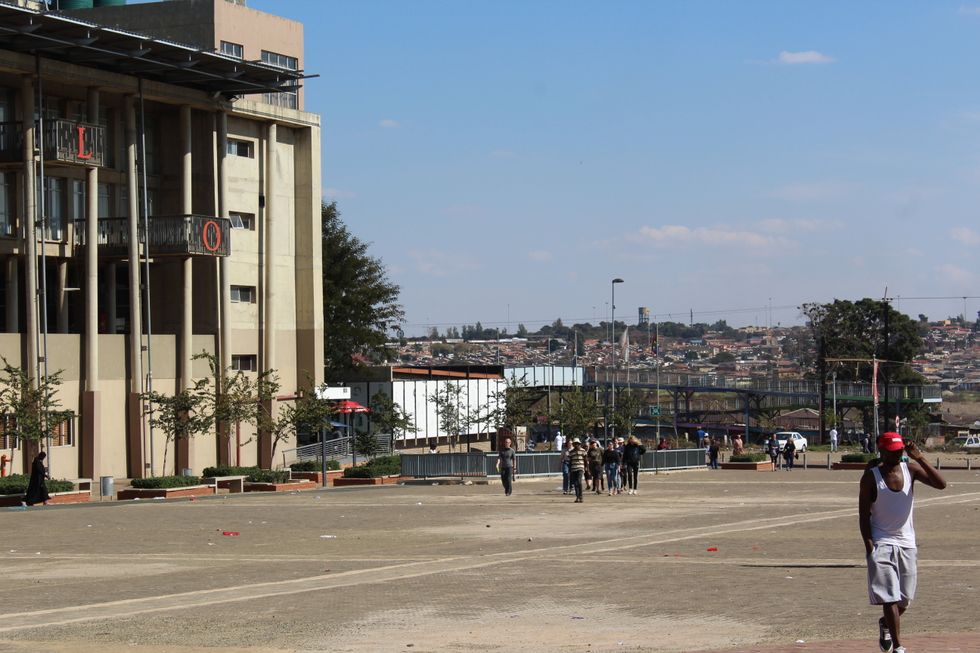In my experience in school, history was usually portrayed as following a linear progression, where gains are gradually and progressively achieved by once marginalized groups. According to this understanding of history, the world improves with each generation, slowly drawing closer and closer toward the ideal of justice.
This is certainly the way South Africa's history had always been portrayed to me. My understanding amounted to a vague notion that Nelson Mandela brought freedom from racism and became the leader of a truly democratic society. However, spending the last five months there has totally challenged this understanding.
The truth is that South Africa is a long way from realizing a democratic society. The unemployment rate in the country is close to forty percent, which has contributed to making South Africa the most unequal society in the world. This means millions of black people live in corrugated metal shacks located in townships that were created to realize the apartheid regime's segregation policies.
It is very difficult to deduce the reasons why South Africa has failed to cast off the chains of its history. My time there has left me with far more questions than answers. But seeing the way the poor are forced to live forced me to realize the level to which injustice is present in 2019, fostering a more realistic view of what the world is really like. During my time abroad, I read about the deaths of two men, both the same age as me. One was Mlungisi Madonsela, who was shot by police at a protest at the South Africa's Durban University of Technology. The other, Willie McCoy, a rapper from Vallejo, California, who performed lyrics critical of the criminal justice system, was shot, again by the police, 55 times while he slept in his car. In my opinion these two murders are not isolated aberrations, but connected in that they represent the natural consequences of resistance to the world system of oppression.
Reading these stories left me with more hard to answer questions about this historical moment. It has become very difficult for me believe in all this progress I learned about in high school. At this point, my mind is unable to trace a linear conception of history. Instead I see Donald Trump preparing for war with Iran and Venezuela. I see children dying in cages at the southern border. I see millions of black lives ruined by mass incarceration. I see political prisoners like Mumia Abu Jamaal and Leonard Pelletier steadily getting older and older with little chance of release let alone the realization of the revolutionary ideas they believed in.
In my mind there is a lot of truth in Ralph Ellison's novel Invisible Man. Right now perhaps the most important revelation in that book for me is his protagonist's conception of history which is, "Not like an arrow but a boomerang."
Ellison's advice of what to do to avoid the boomerangs history is very much a prescient analysis of this historical moment, "Keep a steel helmet handy."

















